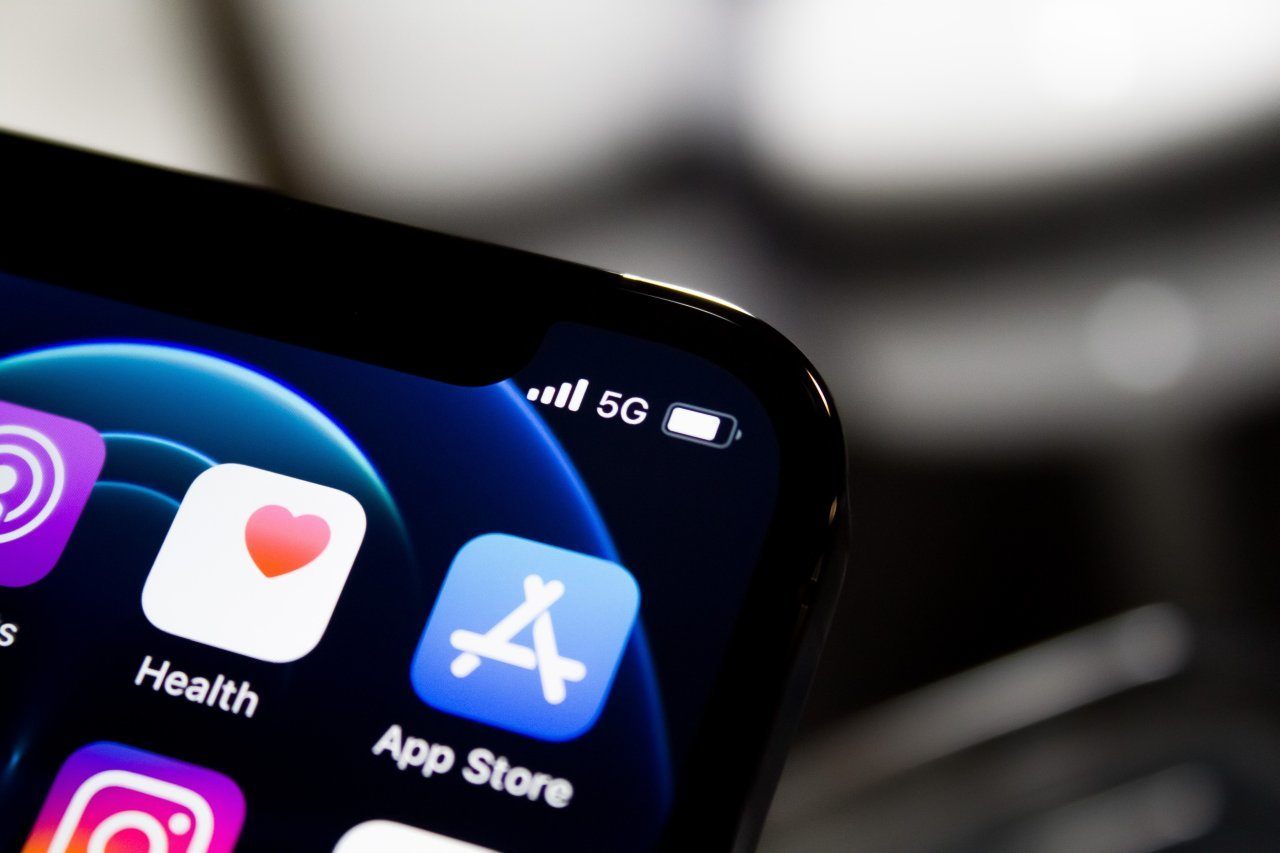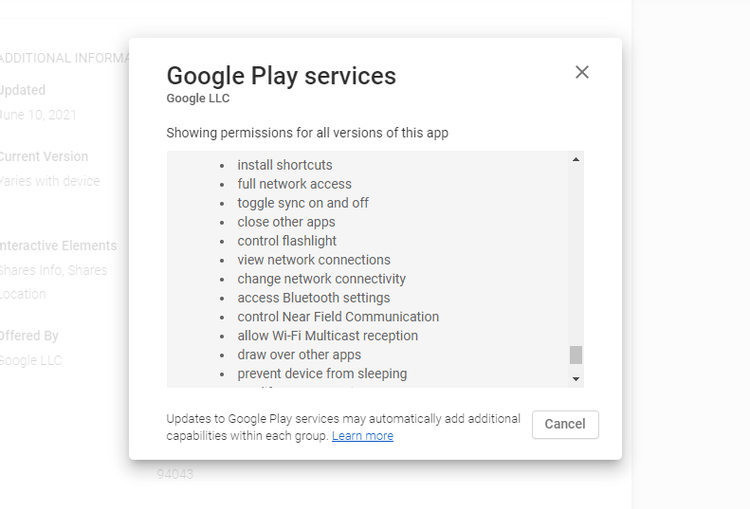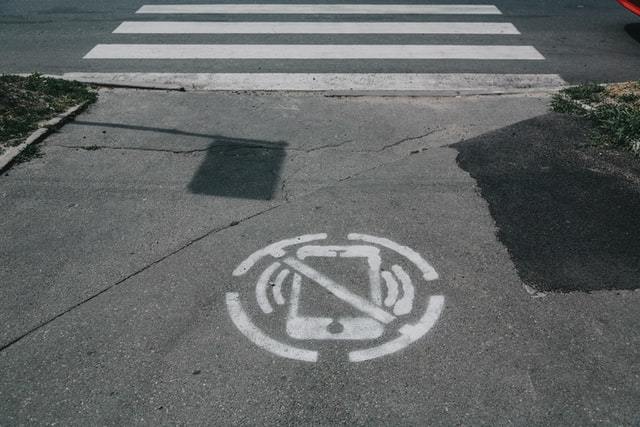
Who Controls Your Mobile Phone?
Hint: It’s Not You
99.5% of mobile phones run either Google’s Android operating system or Apple’s iOS operating system. Is it okay that they get to decide how you use your own phone?
If you glance up to check the time from almost any location at a Swiss railway station, you can’t miss the clock. Designed in 1944, the elegant and timeless design has since become a Swiss cultural icon.

The design is so good that Apple used it without permission until the Swiss railway, SBB forced them to pay licencing fees.
Last Christmas I decided to grace our kitchen wall with one of their miniature replicas. The clock I choose even mimicked the pausing of the second hand on the hour mark.

So I collected the clock at the railway station, carried it home and unpacked it at the dining table. It was beautiful, an exact replica of the station clock. It even came with batteries included!
All I had to do before hanging it was to set the time.
I turned it round and looked for the dial that would turn the hands. There was no sign of one. Maybe it used a different mechanism, I thought, so I searched. I turned it round and round; nothing. I searched around the beautiful silver trimming for a switch or a wheel … nothing again.
I looked the clock over once more to double check but there was no mistake; there was no way to set the time on the clock.
Of course I knew that was impossible. A clock’s job – especially a Swiss railway clock – is to tell the time. So there had to be a way.
I’m a techie. I usually consider reading “the manual” a sign of weakness. This time I’d no choice. I took out the little booklet and turned to the “Setting the time” section:
- STEP 1: Download the companion app for the Mondaine smart wall clock from Google Play or the Apple Store.
Seriously? I needed an app to set the time? I couldn’t believe this. Nowhere on the packaging or promotional material had it mentioned this. Nor had it mentioned that the clock needed a permanent bluetooth connection to connect to the mobile phone. More pollution of the ether …
It’s my phone … or is it Google’s?
I like to keep my phone clean and clutter-free. I’m generally opposed to installing a silly little app for every simple task. But I’ve gone further than that.
Last year I hacked my Android phone to install a custom operating system. That way I could run my phone without any Google services running. Google could no more track where I was, what I had on my phone, what I used it for and when. No sir, Google was not getting any more free data about my phone use, no matter how wonderful their products. (I also moved away from using all Google products except what was essential for receiving information from customers. That’s a whole other story…)
Google have gotten out of hand and I’m tired of them following me everywhere online. Just read the popup that tells you what permissions an app needs when installing it. Did you realise how much permission you give to Google to track you?

We’ve accepted this trade-off with every social network we use. Free email providers, online maps sites and many internet-driven services do it too. (You’ll probably be shocked when you realise how much information Facebook gathers about the websites you visit – even after you leave Facebook? See how much at this page.)
There are many ways to cope with this new reality, but as we see with every EULA (End User Licence Agreement; this appears when you install software and you probably don’t read it), you either accept this or you opt out.
So I choose to opt out entirely by making my phone my own and I considered myself free!
Google won’t let me set my clock’s time
That SBB clock proved me wrong. I had no Google services on the phone and so no Google Play Store. I couldn’t log into Google Play because it refused a connection from this now “insecure” phone. For Google, “insecure” means that they are no longer in full control of my phone. So they exclude me from using their services if I refuse to give them full access to my data. (There is actually a way to get apps from the Google store without logging in, as we’ll see below.)
Would you like
more like this?
Join our mailing list for thought-provoking articles on sustainability and privacy in the context of running an online business.
So the fate of the wall clock was decided then and there. I returned it for a simpler model. One that doesn’t constantly emanate Bluetooth electromagnetic radiation and constant surveillance by Google. I’m very happy with it. Still, that pausing second hand effect would have been nice…
Since then I’ve run into many similar obstacles when trying to do simple tasks. To recall a few:
- I had to change my bank. My bank removed their web portal and moved completely to an app. Their app will not run on my now “compromised” mobile phone!
- My credit card company also closed their web portal. I can no longer see my transactions or statements without their mobile app
- I couldn’t switch to an online bank even if I wanted to or use trader apps because their checks won’t allow me to install their apps on this phone
What’s my problem with this?
Now I have no real problem with a bank not allowing me to install an app … providing they offer me a working alternative. I don’t want to use my phone for banking anyway. But if they don’t provide an alternative to their mobile app? That’s lazy and presumptuous!
The mobile phone may be the greatest invention in the world ever and almost everyone may have one. But it’s presumptuous of a business to assume I want to use that phone for every interaction with them. There’s no way I should have to install an app to set the time on a wall clock! That’s lazy thinking.
And what if I neither have nor want a mobile phone? Well, then I’m excluded from dealing with these businesses. I don’t exist..
To these businesses I say: you’re excluding yourself from my custom. You’re showing me your willingness to sell out, to do the easy thing, to stop putting your customers first. By appealing to the majority you’re telling me I’m not important enough to you. Well, then you aren’t the kind of company I want to deal with.
Is this situation okay?
You might, like most people, think so what? I’ve messed up my phone and now Google rightfully won’t allow me to install certain apps because they can no longer be sure the phone is secure.
But it’s my phone. I bought it. I paid for it in cash and in data that Google has gathered from me for free. The lock company doesn’t check my house door is locked and tell me I can’t leave the house until it is (at least not yet). So why can Google do that with my phone?
This situation is completely under the control of the mobile operating system developers and there are currently just two big players. At the time of writing and depending on your source, Android – developed by Google – has a market share of 72% to 88% and Apple’s iOS has a share of 10% to 26%. That’s a combined share of about 99.4% of the mobile phones in the world today. (Typically the iPhone is more popular in relatively wealthier markets, hence the iPhone is more popular in the U.S. and here in Switzerland. But in most of Europe and the rest of the world, Android devices are vastly more popular.)
Google and Apple have total control over the app stores and there is no competition. They can refuse to list any app in their store.
They are also both companies with questionable moral behaviour when it comes to using or abusing the data they’ve collected from you while you use their products.
But we’ve had such a monopoly situation in the past and we will again in other industries with other companies.

What astounds me is that most businesses appear to think this is okay. The reason I think this is they don’t offer me any alternative to using the Google- or Apple-controlled app stores. It would be simple for a business to add an extra download link to the installation file as in the image above. But very few do. They could write their apps so that they don’t strictly require a Google account to be used. But very few do.
If I’m interested in an app I’ll typically send an email to the company asking for an alternative way to install it. I’ve sent dozens of these emails. Not because I’m an app addict but out of curiousity. To date just one company has sent me a link to their installation file.
Maybe I’m just a complainer
Of course Apple says it’s just giving customers what they want. And Google are just concerned about their customers’ security.
Both companies stress that their control ensures your security and privacy. Without that control apps may of course be cheaper and more easily available. But they could also be less safe.
This is a very valid argument. There are plenty of malicious apps out there. The average phone owner does not have enough technical knowledge to look after their phone’s security. It’s possible that Apple really does care about your safety. And it may be possible they aren’t worried about billions of dollars in lost revenue if they can’t earn commission from every app you install. (Apple charges app owners 15% to 30% for every sale. This resulted in earnings of an estimated $22-$70 billion in 2020, about 80 percent of which was profit. Google reportedly earned $40 billion in the same year).
How you can avoid the above situation
Now for the good news. You have alternatives; four that I know of. Here they are in order of decreasing difficulty. By the way, please note that this is for informational purposes only; I can’t be held responsible if you damage your mobile device by taking any of the following options:
- Install a new operating system with no Google services on your Android device. This is possible since Android is open source, i.e. the code is available for anyone to change. This is not possible on Apple devices since iOS is closed-source software. Nothing can be installed without a connection to Apple.
- On Android, you can install apps from the Google store without logging in. The free app Aurora will connect anonymously to the App Store so Google can’t track you. You can install most apps from there. Be sure to use only apps that have been inspected, reviewed and trusted by knowledgeable members of the community (e.g. you’ll find trustworthy information on xda-developers.com).
- The last option is to do what almost everyone does. Conform. Accept that your phone, the software on it and the data about how you use that phone are NOT yours. Allow Google and Apple to collect your information and use it for their benefit. Of course, both companies stress that this is also for your benefit.
- The surest option of all: Don’t own a mobile phone.

Photo by Marjan Blan | @marjanblan on Unsplash
The future of app stores?
As usual, I have some hope. The U.S. authorities haven’t done much to date about these monopolies; it’s a different story in other parts of the world. It’s not yet mainstream news but I’m not the only one to question and curtail the control of these companies:
- The European Commission believes Apple is abusing its power and in violation of EU antitrust laws. They found that Apple deprives users of choice and distorts competition. The app store is the only way for Apple mobile users to get apps for their devices. This forces developers to obey their rules and pay Apple’s commissions to get access to Apple’s users.
- The U.K.’s antitrust regulator, the Competition and Markets Authority, announced it is “taking a closer look”. Specifically at Apple’s iOS and App Store, their Safari browser as well as Google’s Android, Play Store and Chrome browser.
The part I like: they’re “… looking into whether this could be creating problems for consumers and the businesses that want to reach people through their phones.” - Japan’s Fair Trade Commission (JFTC) said it was anti-competitive for Apple to force developers to pay Apple’s commission. Apple should allow users to pay with other options, for example pay on the developer’s own website. Since that decision, the JFTC has moved on to investigating how Apple and Google control so much of the mobile ecosystem:
they will investigate whether Apple and Google are using their dominance of mobile operating systems to eliminate competition and severely limit options for consumers […]
i.e. exactly what this article is about! - The Netherlands fined Apple €5 million for not making sufficient changes to App Store policy. Like the JFTC, the Dutch antitrust authority found Apple’s in-app payment arrangements to be anti-competitive … Apple were forced to allow third party payment options but have childishly made the process so difficult as to be almost unuseable.
- In the U.S., the Open App Markets Act bill advanced to the next stage of discussion in February 2022, though it’s unlikely to get as far as becoming law. Of course Apple is fighting this bill with their old reliable argument that it will “hurt user privacy and security”.
The constant poking and prodding of these investigations is having an effect. Both Apple and Google have been found guilty of being anti-competitive in several cases. Apple now must allow unlisted apps (apps that don’t appear in App Store searches but can be accessed through direct links) and third party payments (i.e. payments not processed by Apple themselves) must now be allowed in South Korea.
A P.S. It’s not just the authorities that have been trying to get past Apple’s restrictions. Apple discovered a few years ago that both Facebook and Google used a technical loophole to install some of their own apps onto iOS from outside the App store. These apps monitored teenagers’ smartphone behavior in exchange for monthly gift cards. (Your teenager’s privacy was worth all of $20 to FB, in case you wondered). The loophole happened to be the same trick that Apple themselves use to distribute their apps! Apple immediately revoked both companies’ app development certificates.
Sources
https://www.statista.com/statistics/272698/global-market-share-held-by-mobile-operating-systems-since-2009/
https://en.wikipedia.org/wiki/Swiss_railway_clock
https://www.vox.com/recode/22821277/apple-iphone-antitrust-app-store-privacy
https://www.axios.com/app-store-crackdown-senate-apple-google-3b1a7028-0037-42e1-a116-f9e653ded82c.html
https://www.theverge.com/2019/10/4/20791856/apple-ios-app-store-riley-testut-altstore-delta-nintendo-emulator-release
https://www.zdnet.com/article/apple-allows-unlisted-entries-in-app-store-once-its-approval-is-gained/
https://9to5mac.com/2022/02/02/apple-urges-us-lawmakers-against-bill-to-allow-ios-apps-outside-the-app-store/
to read:
https://abcnews.go.com/Technology/wireStory/uk-watchdog-examines-apple-google-mobile-system-control-78290166
https://arstechnica.com/gadgets/2021/03/android-sends-20x-more-data-to-google-than-ios-sends-to-apple-study-says/
https://www.usatoday.com/story/opinion/2021/05/13/apple-and-googles-unfair-advantage-app-world-column/5026846001/
https://www.cnet.com/tech/services-and-software/apple-and-google-mobile-ecosystem-dominance-under-scrutiny-by-uk-antitrust-regulator/
https://arstechnica.com/gadgets/2021/03/android-sends-20x-more-data-to-google-than-ios-sends-to-apple-study-says/
https://www.statista.com/statistics/296226/annual-apple-app-store-revenue/
https://www.statista.com/statistics/444476/google-play-annual-revenue/
https://eu.usatoday.com/story/opinion/2021/05/13/apple-and-googles-unfair-advantage-app-world-column/5026846001/
